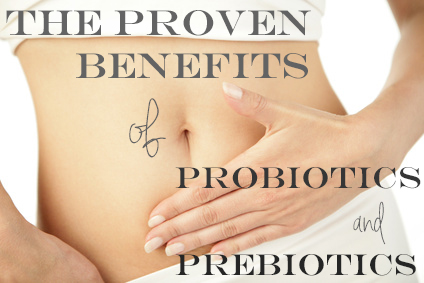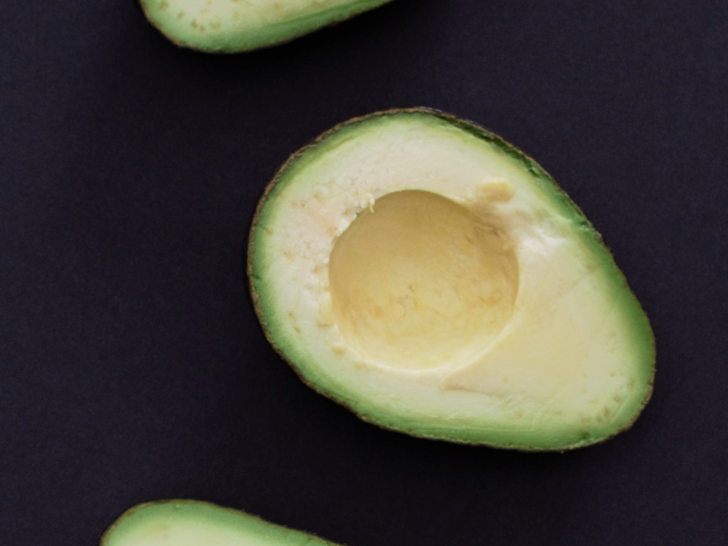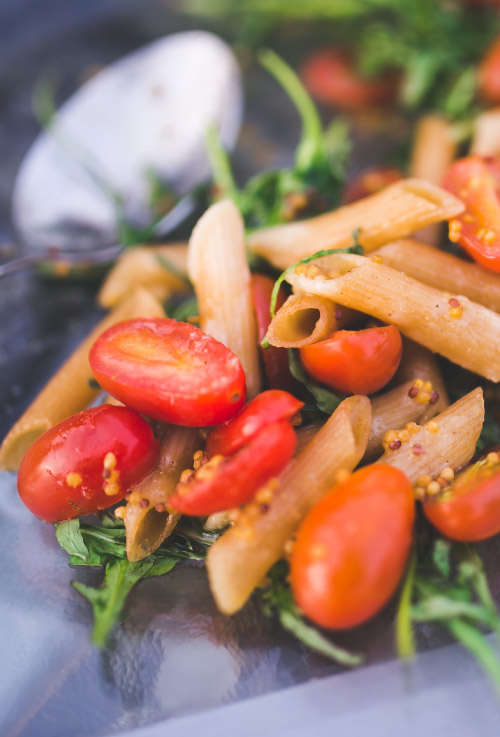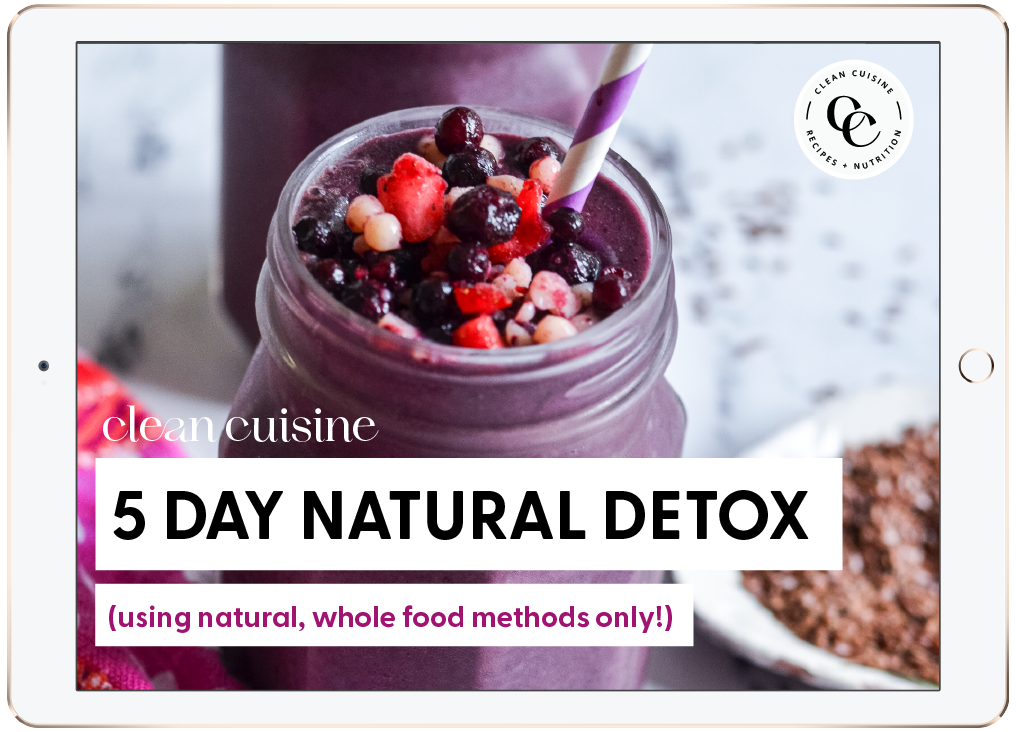By Andrew Larson, MD, FACS, FASMBS
Here at Clean Cuisine and with my own patient population I have seen an increasing interest in prebiotics and probiotics both as standalone supplements and to be consumed in functional foods such as kefir, miso, tempeh, sauerkraut and garlic.
But, do prebiotics and probiotics live up to the hype? Yes is the short answer. In fact, I recently came across an academic review article delineating several benefits for prebiotics and probiotics in children’s health in a highly respected medical journal1 and I am more convinced than ever that prebiotics and probiotics are an exciting area of preventive medicine for adults and kids alike.
What are Probiotics? What do Probiotics Do?
Probiotics are “friendly” bacteria that keep you healthy. Probiotics are living good bacteria that stay alive in your intestine after being consumed. These microscopic organisms work hard to alter the overall intestinal environment to a favorable one by crowding out bad bacteria such as viruses that might otherwise dominate and harm health. Even though they are bacteria, probiotics actually help protect your body from infection. Probiotics can stimulate and work with your immune system to improve your health and prevent, or even treat, certain diseases.
Probiotics help with digestion and nutrient absorption. Probiotics enable essential health-promoting nutrients to be absorbed that otherwise would not have been able to cross the intestinal wall into the circulatory system. In fact, the depletion of “friendly” probiotics can lead to nutrient depletion and consequently inferior health; if your body can’t utilize the nutrient-dense foods you eat it’s just as bad as not consuming them in the first place. The regular consumption of probiotics will help your body to properly digest, process and utilize the food you eat. Probiotic consumption also increases the bioavailability of minerals, especially calcium.
Probiotics help detoxify and cleanse your body. Probiotics have been shown to support liver function and detoxification. These “friendly” bacteria filter toxins in the gut before they get into the bloodstream. The presence of probiotics speeds up the transfer time of toxic waste in your colon, thus preventing toxins from staying in your body and being reabsorbed in your bloodstream.
The Science Behind Probiotics & How a Probiotic Rx Might Help You

The strongest evidence for probiotic benefits exists for the prevention and treatment of diarrheal illnesses. For example, one comprehensive review study2 reveals that the probiotic S. boulardii can reduce antibiotic associated diarrhea by more than fifty percent. To prevent antibiotic associated diarrhea probiotics should be taken as soon as one starts taking the antibiotic for best results; nevertheless, even after diarrhea has already set in probiotics have been shown to cure it more quickly.
Probiotics are also effective at treating infectious diarrhea caused by viruses or bacteria that is unrelated to antibiotics use. Probiotics are effective at preventing and treating traveler’s diarrhea and problems caused by the bacteria h. pylori, a major cause of gastritis and stomach ulcers. Probiotics are also effective at maintaining remission of disease in persons with ulcerative colitis. Other gastrointestinal conditions thought to be helped include c. difficile colitis, a deadly disease caused by antibiotic use, Crohn’s disease, and irritable bowel syndrome.
Probiotics seem to have benefit as regards to dental conditions, including gingivitis and the development of dental disease.
The consumption of probiotics is even linked to an improvement in halitosis (bad breath.)
Probiotics have proven benefits for infants and young children. There is good research to show probiotics cut dramatically, by about 50%, the risk of an infant or young child developing eczema, allergic rhinitis (nasal allergies), or asthma. Probiotics have also been proven to treat, and often cure, allergic dermatitis (skin disease) in children.
Probiotics can help prevent infections. In adults tantalizing research indicates probiotics can prevent infections of the ears, nose, and throat, and the urinary and respiratory systems.
There may be benefits in preventing cancers of the colon (3) and bladder and even helping with the management of diabetes and rheumatoid arthritis.
Potentially Promising Weight Loss Benefits of Probiotics
As a bariatric (weight loss) surgeon I am always intrigued with new research that might help my patients lose weight. Some preliminary studies at Washington University (4, 5) in St. Louis have revealed certain “unfriendly” gut bacteria are exceptionally adapt at extracting calories from food, thereby doubling fat accumulation. Lead investigator Dr. Jeffrey Gordon theorized that “…differences in our gut microbial ecology may determine how many calories we are able to extract and absorb from our diet and deposit in our fat cells.”
In other words, depending upon intestinal bacteria levels, you might not necessarily extract the same number of calories after eating your bowl of pasta as your friend does after eating hers, which may help explain why some people seem to be able to eat more than others without gaining weight. As of now I cannot say there is definite proof that just by adding probiotics you lose weight, but it is theoretically possible that adding more “friendly” bacteria just may help you shed pounds. And there is no downside to doing so.
What are Prebiotics?
Prebiotics are non-digestible carbohydrates such as “fructo-oligosaccharides,” “inulin,” “galacto-oligosaccharides” that many probiotic bacteria consume for food. If you eat more prebiotics you will likely have more good “friendly” bacteria in your intestine.
What are the Proven Benefits of Prebiotics?
Non-digestible carbohydrate prebiotics have been studied extensively and have been shown to reduce asthma and eczema in children and, just like probiotics, they are helpful in reducing problems with diarrhea in persons of all ages. According to the Mayo Clinic prebiotics found in a wide variety of fruits, unrefined whole grains, and vegetables can also help normalize bowel function and support a healthy immune system in general. Prebiotics have been shown to hold significant promise for reducing the risk of developing colorectal cancer(6), a disease in my surgical practice that I operate for on a weekly basis.
The Bottom Line on Prebiotics and Probiotics
Unfortunately, numerous factors can disrupt the balance between “good” and “bad” bacteria, and therefore interfere with your body’s natural ability to heal and detoxify itself. Helping to restore intestinal integrity, probiotics work round the clock to balance the “good” and “bad” bacteria within the GI tract, which can easily be upset by chlorinated water, poor elimination of waste, stress, oral contraceptives, a diet rich in refined foods and poor digestion. Antibiotics can also wreak havoc on the gut flora. I always tell my patients and family members that they should take antibiotics as infrequently as possible and if they do need to take them then it is important to simultaneously supplement with a high quality probiotic.
Choosing a High Quality Probiotic Supplement
In addition to eating foods containing prebiotics and probiotics, I encourage my patients to supplement with probiotics on a regular basis as a good way to maintain the normal gut ecology and reduce toxins produced by imbalances in gut bacteria.
When looking for a probiotic supplement it is important to realize not all probiotics are equal from a quality or bioavailability standpoint (meaning your body doesn’t always absorb the probiotics that the label claims it has.) Many mass market probiotic supplements contain a limited number of good bacteria and are manufactured in such a way that the good bacteria cannot necessarily survive –such as being exposed to heat and light–or contain fillers and added sugars that interfere with their bioavailability. It is important not only to choose a supplement that is high quality, but also one that has a broad spectrum of strains.
 Our own Clean Cuisine probiotics brand containing a broad spectrum of strains of highly bioavailable-friendly bacteria that have been clinically documented for their effectiveness (such as Lactobacillus and Bifidobacterium). Providing a dairy free, high-potency 25 billion hypoallergenic blend of 12 certified probiotic species, Clean Cuisine’s Probiotics offer broad coverage to support a healthy balance of microflora across the entire gastrointestinal tract.
Our own Clean Cuisine probiotics brand containing a broad spectrum of strains of highly bioavailable-friendly bacteria that have been clinically documented for their effectiveness (such as Lactobacillus and Bifidobacterium). Providing a dairy free, high-potency 25 billion hypoallergenic blend of 12 certified probiotic species, Clean Cuisine’s Probiotics offer broad coverage to support a healthy balance of microflora across the entire gastrointestinal tract.
In addition to the Clean Cuisine brand I also tell my patients about Dr. Ohhira’s premium broad-spectrum probiotic supplement brand containing 12 strains of friendly bacteria, including E. faecalis TH. Dr. Ohhira’s award-winning brand was developed by Japanese microbiologist Dr. Iichiroh Ohhira, PhD, and, to my knowledge, is the only manufacturer that relies on a natural fermentation process using ancient Japanese traditions. I am sure there are other good probiotic supplements on the market but Dr. Ohhira’s is definitely a superior choice.
Probiotics and prebiotics are also available naturally in food.
Look for a complete list of healthful Clean Cuisine foods containing prebiotics and probiotics HERE.
P.S: Be sure to ask any questions you may have in the comment section below!
REFERENCES
1. Thomas, DW, Greer FR, and Committee on Nutrition; Section on Gastroenterology, Hepatology, and Nutrition “Clinical Report—Probiotics and Prebiotics in Pediatrics” Pediatrics, vol. 126, no. 6, Dec 2010
2. McFarland LV, “Systematic review and meta-analysis of Saccharomyces boulardii in adult patients” World J Gastroenterol. 2010 May 14;16(18):2202-22
3. Wollowski, I. G., et. al. “Protective Role of Probiotics and Prebiotics in Colon Cancer,” American Journal of Clinical Nutrition 73, no. 2 (2001): 451S-5S.
4. Turnbaugh PJ, et al. “An obesity-associated gut microbiome with increased capacity for energy harvest.” Nature, Dec. 21, 2006.
5. Ley RE, Turnbaugh PJ, Klein S, Gordon JI. “Human gut microbes associated with obesity.” Nature, Dec. 21, 2006.
6. Geier MS, et. al. “Probiotics, Prebiotics and Synbiotics: a role in chemoprevention for colorectal cancer?” Cancer Biol Ther. 2006 Oct;5(10):1265-9









Amanda Drew
Wednesday 23rd of May 2018
That's good to know that probiotics will make there be more friendly bacteria in your intestine. My son is rather sickly and is always having stomach problems. It seems like getting some sort of children's probiotic for him would be a really good idea.
Ivy Larson
Friday 25th of May 2018
Amanda, yes! I would definitely get him started on a broad strain of probiotics (even if it an adult version split in half---it can be hard to find a good kid brand)